Note that the products discussed on our site are independently selected by our editors. Your purchases through our recommendations may earn us a commission at no extra cost to you.
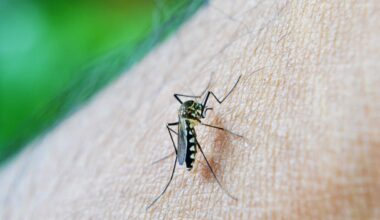
Mosquitoes are one of the greatest annoyances of summer. The more the temperature rises, the more the number of mosquitoes increase as well. You probably do not worry much about mosquitoes – until you end up with itchy bumps on your skin. Whereas, it is of utmost importance that you worry about mosquitoes before you end up with mosquito bites and know how to refrain from getting them.
Mosquitoes are very week flyers, and they find it hard to fly in strong winds. Your ceiling fan, if used at high speed, can generate current of wind strong enough to keep mosquitoes away from you quite effectively.
According to the World Health Organisation, above 40% of the world’s entire population is currently vulnerable to mosquito-borne diseases. Therefore, it is crucial for everyone to educate themselves regarding various ways to keep these dangerous little insects as far as possible. In this article, we will discuss how a ceiling fan can keep the mosquitoes away from you, as well as some other ways to get rid of them.
Why do mosquitoes bite us?
Before we get into how a ceiling fan can help keep mosquitoes away, let us take a look at why exactly mosquitoes feed on us. To start off, it is true that mosquitoes bite some people more than others. Dr. Jonathan Day, a mosquito expert and medical entomologist from the University of Florida, explains that some people’s skin produce more of some specific chemicals – such as lactic acids – that are appealing to mosquitoes.
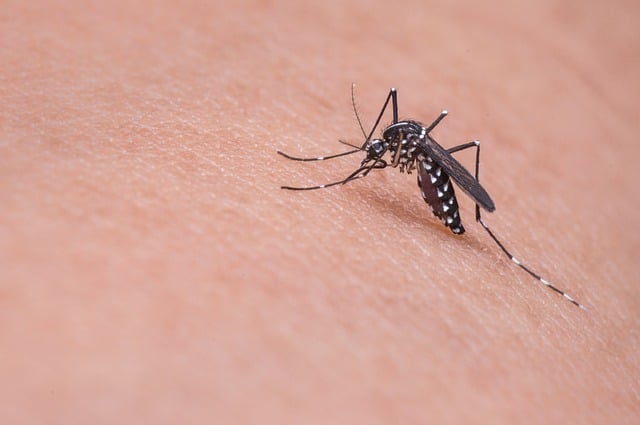
The mosquitoes that feed on human blood are female mosquitoes. However, they do not suck on human blood for their own nutritional reasons. The female mosquitoes require the protein as well as other components from the human blood, in order to produce eggs.
The mouthpart of a mosquito, that is similar to a hypodermic needle, is known as proboscis. A female mosquito makes use of its proboscis to pierce through the human skin and investigate around it – in order to look for a capillary to suck blood from. When it finds the capillary, it then sucks the blood out which goes into her abdomen to be digested and produce eggs.
The dangers and risks associated with mosquitoes and other similar insects
When a female mosquito pierces through your skin and sucks on your blood, it injects some of its own saliva into your bloodstream. The saliva of a mosquito consists of an anticoagulant, which is meant to prevent your blood from clotting. However, this is also a direct process of transmission of diseases into your bloodstream by the mosquito.
Even though not all mosquito bites impose risks to your health, some mosquitoes carry dangerous diseases with them. Mosquito-borne diseases cause the deaths of millions of people every year worldwide. According to Medical News Today, malaria – which is a disease specifically caused by mosquitoes – caused the deaths of approximately 438,000 people worldwide in 2015.
Below are some of the serious diseases that are mostly found in the tropical and sub-tropical regions. They can be caused by mosquitoes and other similar insects, such as fleas, ticks, lice, and bed bugs.
- Malaria: Malaria is a deadly disease which is unique to mosquitoes. This disease is caused when mosquitoes inject parasites into a person’s bloodstream. As a result, the parasites infect and destroy the person’s red blood cells.
- Dengue fever: Dengue fever causes muscle soreness, rash, joint pain, and high fever. When this disease is too severe, it could cause shock, severe bleeding, and even death.
- West Nile virus: Majority of the people that develop this disease do not demonstrate any symptoms. However, some might show some symptoms of flu or fever.
- Yellow fever: Yellow fever is a virus that leads to inflammation in the spinal cord and brain. The symptoms of this virus are sore throat and fever.
- Chikungunya: Some of the common symptoms of this disease are headache, rash, joint pain, and fever.
- Zika virus: Some of the initial symptoms of this disease are joint pain, fever, and rash – these symptoms generally go away within a week. However, if a women conceives a child after getting a mosquito bite carrying zika virus, she could end up with congenital anomalies.
How your ceiling fan will keep mosquitoes away from you
As is the topic of this article – a ceiling fan can be a very good option to deter mosquitoes away from you. Here’s why.
Mosquitoes do not prefer to fly in windy conditions – which can be produced by a ceiling fan
Tiny flying insects, such as mosquitoes, have a preference of flying when the wind is calm. This is the reason why we find flies flying here and there on humid and hot summer days – when the wind is still. However, during a storm, when the sky starts to get dark and the wind becomes unsteady – you cannot find anymore flies in sight. This is because flies do not want to spend the energy it would require to fly when it is windy.
Similarly, mosquitoes as well as other flying insects tend to refrain from flying near windy areas. Moreover, a research suggests that mosquitoes are weak flyers by nature. As a result, it makes reasonable sense that a ceiling fan can actually succeed in driving them away. To add on, a mosquitoes’ flight muscles make use of plenty of nutrients in order to fly. Therefore, flying in windy conditions would only lead them to consuming more energy and hence, using up the nutrients the mosquitoes’ flying muscles require in a more rapid manner. Due to this reason, mosquitoes as well as most flying insects tend to refrain from flying in the storm or facing the air currents that make them spend a lot of their energy.
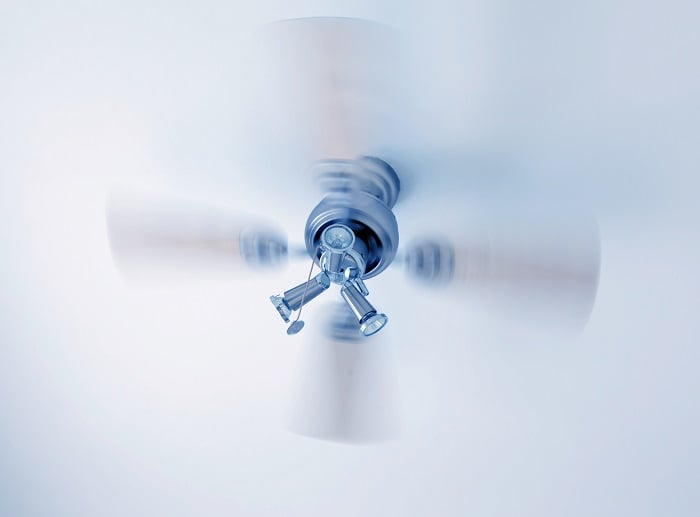
Learn more here: https://www.ncbi.nlm.nih.gov/pubmed/14596273
Mosquitoes prefer to be at moist areas – a ceiling fan keeps its surrounding area dry
When a ceiling fan moves and circulates air in its surrounding area, it tends to keep the area less humid or drier than it would be without a fan. A lot of people do not seem to notice that the more humid an area is, the more mosquito bites people end up with. This is because mosquitoes prefer to be present at an environment that is moist. Therefore, when you run your ceiling fan, now you know that you are killing two birds with one stone – they do not like to fly in areas with air movements and they will eventually fly away from a drier area to a moister area.
Mosquitoes are attracted to carbon dioxide – ceiling fans disperse carbon dioxide and other chemicals expelled by our body that mosquitoes would find attractive
Like we have mentioned before, mosquitoes are attracted to some people more than others. This is because some people produce more of certain chemicals that draw the attentions of mosquitoes. Some of the things that tend to attract mosquitoes are: the amount of carbon dioxide released by your body, lactic acid, as well as your metabolic rate. Carbon dioxide is one of the primary means for mosquitoes to identify their hosts in order to feed on their blood.
Even though you can potentially bring your metabolic rate to a moderate level by dieting and exercising, you cannot really expect to alter your metabolism too much. Therefore, you need to look for ways to keep mosquitoes away from you – despite what your metabolic condition might be. One of such ways is making use of a ceiling fan. A ceiling fan aids in dispersing carbon dioxide, as well as other odours of chemicals that are appealing to mosquitoes. As a result, the mosquitoes cannot locate the carbon dioxide or the chemicals in order to pick you as their host.
Also read: 3 blade vs. 5 blade ceiling fans.
How to choose the right ceiling fan for this task
First and foremost, you need to buy a ceiling fan with blades.
Yes, you heard that right. Because there are ceiling fans that don’t have any exposed blades as the traditional ceiling fans. Here’s one for example. And here’s another one.
When choosing a fan to get rid of mosquitoes, at the end of the day, you need a fan that can generate high wind speed while ensuring that it covers an area that is as large as possible.
But the issue here is that, when you increase the blades’ length to cover a large area, the mass of the blades and their drag will also increase.
Therefore, you want a fan with a very powerful motor. Again, remember – the more the speed of the wind, the lesser the number of bites!
Here are some of our top ceiling fan picks for your bedroom.
A Goodly Home
Some other ways to get rid of mosquitoes
Besides keeping mosquitoes away by using a ceiling fan, there are many other ways you can keep them away as well. To add on, in order to ensure maximum effectiveness in terms of getting rid of mosquitoes, it is wise to take several precautions instead of just completely relying on one. Below are some of the other ways to deter mosquitoes that you can benefit from.
Minimise the amount of skin you expose.
When you minimise the amount of skin you expose, you also minimise the chances of being noticed by the mosquitoes and ending up with mosquito bites. Therefore, you should attempt to cover as much of your body as possible. Wearing long pants, long sleeves and loose clothes are some of the suggested examples that you can wear. It is also good to wear shoes and socks if possible.
Avoid wearing dark coloured clothes.
It is recommended that a person should wear light coloured clothes in order to keep the mosquitoes away. This is because mosquitoes find people with dark coloured clothes more attractive. One of the reasons of this is that mosquitoes can see dark coloured clothes better and clearer than light coloured clothes.
Put on mosquito repellent on the areas of your skin that are exposed.
For the areas of your body that you are unable to cover up, you can put on a mosquito repellent that contains 15% DEET. Make sure to always carefully follow the instructions given on the label in order to be able to safely use the product. A mosquito repellent should protect you from mosquito bites for a period of approximately 90 minutes. Do not apply a mosquito repellent in broken skin, open wounds, or near your mouth and eyes.
Tip: Apply the mosquito repellent by spraying it onto your hand and then rubbing it on your skin – in order to ensure that you do not end up breathing it in while spraying.
Reference link: https://www.health.nsw.gov.au/Infectious/factsheets/Pages/mosquito.aspx
Final words
To conclude, we have discussed in detail how a ceiling fan can deter mosquitoes away from you as well as some other precautions you can take in order to keep them away. Even though the precautionary measures mentioned above can all prove to be effective, they are only temporary solutions to your mosquito problems. Therefore, in order to get a permanent solution as well as get rid of mosquitoes effectively, we suggest that you get in touch with the mosquito control professionals. The professionals would have the necessary knowledge and experience in order to drive the mosquitoes away for good.
Next read
Are Ceiling Fans Dangerous or Safe?
Are Ceiling Fans Outdated? Here Are 11 Reasons To Still Install Them
Best Ceiling Fan Brands: 8 Brands That Offer The Most Value
Can Ceiling Fans Fall? 5 Practical Ways to Make Sure They Don’t
Tower Fans Vs Stand Fans Vs Ceiling Fans Vs Floor Fans – Who’s Best?
Ceiling Fans or Chandeliers? Learn When to Use a Fan or a Chandelier
Ceiling fans have many other benefits as well. Check those out here in the pros and cons guide.
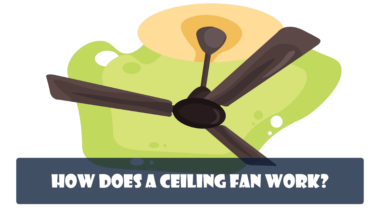
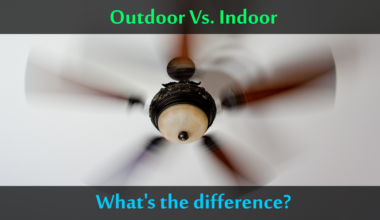


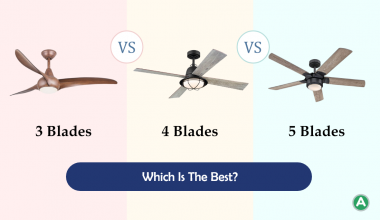
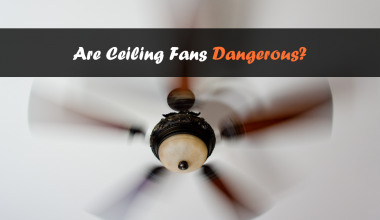

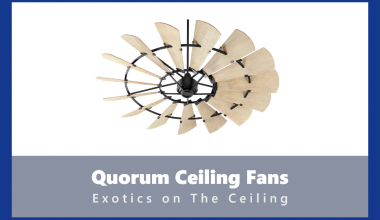
Conversation
No Comments here